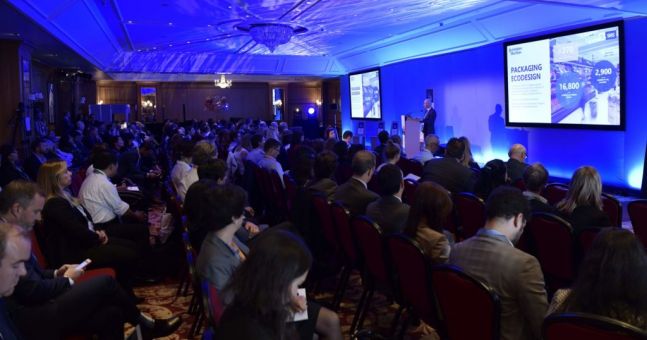With a record number of delegates in attendance, this year’s Consumer Goods Forum Sustainable Retail Summit was always likely to be memorable, and day one of the event, held at Lisbon’s sumptuous Dom Pedro Hotel, was packed with valuable insight.
Indeed, Consumer Goods Forum managing director Peter Freedman set the tone for the day, and the event in general, in his opening address, when he stated that corporate social responsibility is no longer enough, it’s now a “corporate social imperative” to address positive change.
His words were echoed a few moments later in a sobering presentation by Tiago Pitta e Cunha of the Oceano Azul Foundation, who suggested that “Nature is going to be the currency of the future” – indeed, if we don’t look after the oceans, or the planet, there will be little room for business as we know it today.
Pillar Insights
The Consumer Goods Forum has long utilised its extensive network to bring the industry together on key topics, and a Pillar Insights panel discussion brought this home, with representatives from Danone, Walmart, Marks & Spencer, Coca-Cola, Metro AG and Mars Inc taking to the stage to address the actions being taken around a number of important principles.
Isabelle Grosmaitre of Danone probably summed up the efforts of the group best when she reminded those present that “there is no impact at scale without action. […] By acting together we can really impact consumer choices.”
The mid-morning session examined how ’nudging’ consumers in the right direction could lead them to embrace healthier lifestyles.
As Pierre Chandon, L’Oréal Chaired Professor of Marketing, Innovation and Creativity at INSEAD in France explained, “To effectively nudge consumers, you have to move from the mind to the heart.”
Later in this session, Frederico Paiva outlined how retailer Sonae MC has put this into practice, stating that healthy living is “not a need, or a choice – it’s about responsibility.”
And Turkish retailer Migros Ticaret’s chief human resources officer, Demir Aytaç, showcased a novel mobile app that it has introduced, which tracks consumer eating habits and presents them with promotions for products and categories that they are not eating enough of.
Some 44% of those using the app reportedly ‘changed their eating behaviour’ as a result; impressive numbers.
Positive Migration
An analysis of positive migration and its effect on business followed, with insightful presentations from Jobst Koehler of International Organization for Migration and Gideon Maltz of the Tent Partnership for Refugees; while Susana Correia de Campos of Jerónimo Martins outlined how the retailer has embraced the need to integrate migrants into society.
“Migrants are a pool of talent – they are equal in terms of capacity, skills, competencies. We can’t lose this talent,” she explained.
The afternoon session saw Hans van Bylen of Henkel offer an insightful keynote presentation on the need for continuous innovation in order to deliver an increasingly more sustainable product platform.
“It starts with our employees,” he explained. “If they start behaving more sustainably, there is huge potential to drive sustainability.”
The afternoon session finished with a series of speakers addressing the issue of waste, including Richard Thompson of Plymouth University, who called for suppliers to address the ‘end of life’ issues involved in plastics production, and Fernando Ventura of Jerónimo Martins, who outlined the company’s commitments to reducing waste by 50% by 2025.
Roll on day two!
© 2018 European Supermarket Magazine – your source for the latest retail news. Article by Stephen Wynne-Jones. Click subscribe to sign up to ESM: The European Supermarket Magazine.

